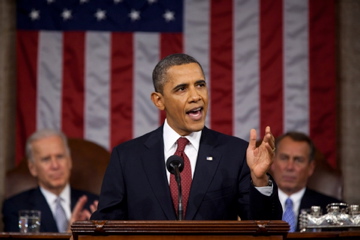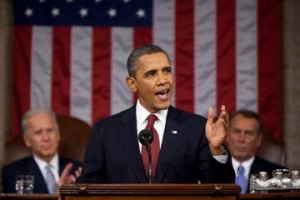There are any number of marvelous things one might do as president, if Congress were not such a checked and balanced mess. But future presidents now have a new method at their disposal: Declare a long-running debate to be a national emergency. Challenge Congress, under threat of unilateral executive action, to legislate on the topic before your term runs out. And when lawmakers refuse, act with the most expansive definition of presidential power.
The supporting arguments for this approach come down to the claim that the American political system is broken — incapable of action on urgent matters because of obstructionism, bad faith and the abuse of legislative procedure. It is the political philosophy of “something must be done.”
The arguments against this approach often come down to institutionalism. Major policy shifts, in this view, deserve legislative hearings and an open amendment process. The White House should make its views known and issue veto threats. There should be a negotiation between the House and Senate to reconcile a bill. There should be a presidential signature, or a veto and an override debate. The machinery is admittedly creaky, but it manufactures democratic legitimacy.
President Obama has ably and sequentially defended both these positions. A year ago, during another immigration speech, a heckler insisted, “You have a power to stop deportations.” Obama replied: “Actually, I don’t, and that’s why we’re here. . . . What you need to know, when I’m speaking as president of the United States and I come to this community, is that if, in fact, I could solve all these problems without passing laws in Congress, then I would do so. But we’re also a nation of laws. That’s part of our tradition. And so the easy way out is to try to yell and pretend like I can do something by violating our laws. And what I’m proposing is the harder path, which is to use our democratic processes to achieve the same goal that you want to achieve.”
Obama has now officially abandoned the harder path — not because the issues surrounding immigration will never be resolved (a case no one has adequately made) but because he wants to be the president to resolve them. Since our democratic process has proved disappointing during his time in office, we get a convenient reinterpretation of tradition — using a history of reasonable discretion in tying up the loose ends of a law to justify a major policy shift in the absence of law. This is motivated reasoning on steroids — and future presidents of both parties will likely find it appealing, on a variety of issues.
By crossing this particular Rubicon, Obama has given up on politics, which is, from one perspective, understandable. He doesn’t do it well. He has always viewed the political process as sullied, compared with the reasonableness of his policy insights. In the aftermath of his party’s midterm defeat, he diagnosed a problem of salesmanship. “It’s not enough just to build a better mousetrap,” he said. “People don’t automatically come beating to your door. We’ve got to sell it.”
To read more click here.






